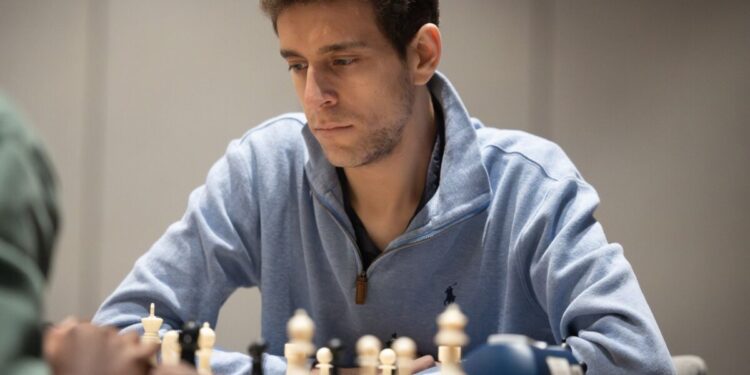Daniel Naroditsky, a 29-year-old chess grandmaster, educator, and beloved figure in the chess world, has died unexpectedly. A cause of death was not revealed.
“It is with great sadness that we share the unexpected passing of Daniel Naroditsky. Daniel was a talented chess player, educator, and cherished member of the chess community,” the Charlotte Chess Center announced on Instagram. “He was also a loving son, brother, and loyal friend.”
“We ask for privacy for Daniel’s family during this extremely difficult time. Let us honor Daniel by remembering his passion for chess and the inspiration he brought to us all.”
According to the U.S. Chess Federation, Naroditsky competed in five U.S. Championships and published his first book, “Mastering Positional Chess,” at just 14 years old.
He captured the gold medal in the Under-12 Open section of the 2007 FIDE World Youth Championships and went on to win the 2013 U.S. Junior (Under-20) Championship at age 17. Naroditsky also contributed to the game as a Chess Life columnist from 2014 to 2020.
Beyond his competitive success, Naroditsky became widely recognized in the U.S. and internationally as a popular chess streamer and educator. As Grandmaster Hikaru Nakamura noted during a Kick stream on Monday, Naroditsky was part of the first wave of prodigious chess streamers, alongside Nakamura himself, International Master Levy Rozman, and the Botez sisters, who helped transform the modern perception of the game.
Naroditsky’s death at 29 represents a tragic loss for the chess community at an age when most grandmasters are in their competitive prime, with decades of potential contributions to the game as both player and educator cut short.
Publishing “Mastering Positional Chess” at 14 demonstrated precocious analytical ability rare even among chess prodigies, establishing Naroditsky as not just a talented player but a teacher capable of articulating complex strategic concepts to broader audiences.
His role as a Chess Life columnist from 2014 to 2020 provided a platform for reaching thousands of U.S. Chess Federation members monthly, cementing his reputation as a communicator who could bridge competitive chess and educational content.
Naroditsky’s identification as part of the first wave of chess streamers alongside Nakamura, Rozman, and the Botez sisters places him among the pioneers who leveraged platforms like Twitch and YouTube to democratize chess instruction and entertainment during the streaming revolution of the 2010s.
The Charlotte Chess Center’s announcement suggests Naroditsky maintained connections to the North Carolina chess community, though his streaming presence allowed him to influence players globally regardless of geographic location.
The “unexpected” nature of his death without disclosed cause has prompted speculation within the chess community, though the family’s request for privacy indicates details may not be forthcoming as they process their loss.
Naroditsky’s dual legacy as competitive player and educator reflects a broader trend among modern grandmasters who balance tournament play with content creation, building sustainable careers that extend chess influence beyond traditional competition.







